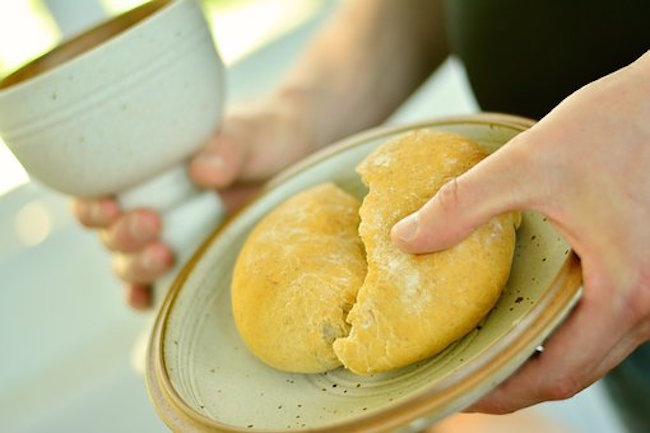Why You Need the Lord’s Supper Frequently by Justin Dillehay for The Gospel Coalition
I can’t remember not going to church. My youthful experiences ranged from Pentecostal to Baptist to non-denominational. But regardless of the setting, one thing that stands out in hindsight was how rarely we took the Lord’s Supper.
I don’t know all the reasons for this omission (though I have some guesses). But having been a member of a church for 13 years that practices almost weekly communion, it’s hard to imagine going back. It’s also hard for me to imagine that those churches wouldn’t have partaken more often with a more biblical understanding of how the Lord uses signs and seals to bless us.
For those who hear this and think What’s the big deal? Guy Prentiss Waters’s new book The Lord’s Supper as a Sign and Meal of the New Covenant can be part of a healthy corrective. As he puts it, “One reason I have written this book is to help Christians recover the importance of the Lord’s Supper in the Christian life” (14). The prose is crisp, the subheadings clear, and the chapters concise.
What This Book Is
As the title of the series suggests, this book is an exercise in biblical theology—a discipline that typically traces its theme through the Bible’s storyline from Genesis to Revelation. Given that people from Genesis to Malachi didn’t even practice the Lord’s Supper, you might wonder where Waters manages to find fodder for the first 84 pages.
If so, I invite you to take up and read. Waters—professor of New Testament at Reformed Theological Seminary in Jackson, Mississippi, and an ordained minister in the Presbyterian Church in America (PCA)—wants us to see that in order to understand what the Lord’s Supper is, we have to understand the role of covenant signs and meals throughout salvation history. That’s why the book is almost three-fourths done before it deals directly with the Lord’s Supper.




